What I’ve Caught Up With, July 2024 Part 1:
Film: Compulsion (1959)
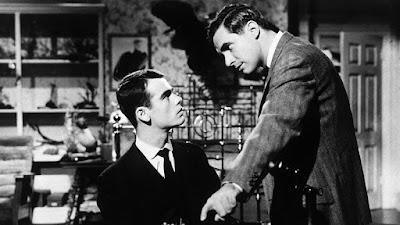
The most famous cinematic exploration in the Leopold and Loeb murders is Rope. While not nearly as famous, Compulsion attempts to be a more complete and accurate version of the story. Two graduate students, Artie Strauss (Bradford Dillman) and Judd Steiner (Dean Stockwell) are firm in their beliefs of the writings of Friedrich Nietzsche and want to prove their superiority by pulling off the perfect crime—a murder of a neighborhood child, who they then try to ransom after the killing. Things get complicated when a number of things go wrong. It’s an interesting cast, including Orson Welles as Strauss and Steiner’s attorney, Martin Milner as a fellow grad student who works as a reporter on the case, and Gavin MacLeod as the D.A.’s assistant. Rope is the better movie, but this is solid.
Film: The Decline of Western Civilization (1981)
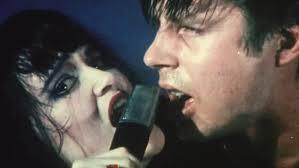
If you’re my age, at some point in your early teens or just before, you encountered punk music, and that was an epiphany in one direction or another. Hearing The Clash for the first time was one of those moments for me. I’m old enough to remember when Elvis Costello was considered punk. Anyway, The Decline of Western Civilization is about the punk movement. Featured bands include the Germs, pre-Henry Rollins Black Flag, Fear, the Circle Jerks, and X. If you’re not a fan of angry, violent music, you’re not going to have a lot here that you want to see, but if you are, this is the kind of footage you’ve been looking for, but I’d really like to have more behind-the-scenes stuff. The music is fun, but a steady diet of it is hard to deal with.
Film: Thirty Seconds Over Tokyo (1944)
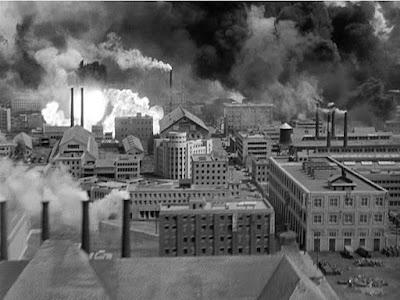
The Doolittle Raid over Tokyo was a much-needed morale boost for the States, so it’s not really a surprise that a propaganda film about the raid was made while the war was still ongoing. While Thirty Seconds Over Tokyo is clearly a war picture, there’s not a great deal of actual war in it. A number of bomber crews train to take off from carriers so that they can bomb cities in Japan. We don’t get to the actual raid for more than the first half of the film, and once that’s over, we deal with downed crews avoiding capture for about 45 minutes. This is big on romance, light on fighting, but it was probably what America needed at the time. It’s a dandy cast, focused mainly on Van Johnson, but with a good role for Robert Mitchum and featuring Spencer Tracy as Doolittle.
Film: JCVD (2008)
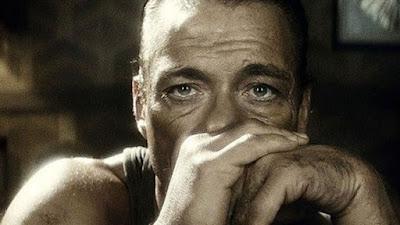
It's always a bit of a crapshoot when actors are cast playing themselves in a film. Often, you get intentional parody. Rarely, you get JCVD, a film where Jean-Claude Van Damme plays a burnt-out, strung-out version of himself who gets caught up in an attempted robbery of a post office. While not parody, this does put a spotlight on Van Damme, blurring the lines between the film plot and the reality of his life, an aspect that culminates in a long single-take soliloquy about his own wasted life. It’s a hell of a concept and a hell of an idea. If you think Van Damme is a talentless action star, JCVD has a little something to say about that.
Film: Wonka (2023)
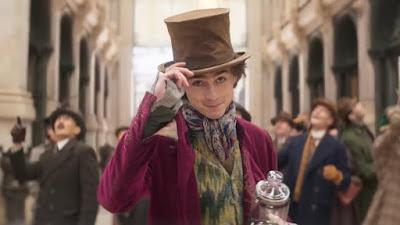
I honestly didn’t love Wonka, and I kind of didn’t really expect to. This is exactly the sort of film that fueled my “I don’t like musicals” opinion when I started this blog years ago. Any movie where the plot can be solved with a song, gumption, and a little bit of magic and optimism is one that I’m going to reject like a bad organ transplant. That said, Wonka might well be the perfect metaphor for late-stage capitalism. Young Willy Wonka (Timothée Chalamet) goes to make his fortune and is trodden down by his competitors and only overcomes this with the use of literal magic, and even then, it’s a close thing. The cast is admittedly very good and very deep, but the plot is literally that the bad guys are only beaten in extreme cases and with extreme measures. Also, like most things that feature Sally Hawkins, there’s not enough Sally Hawkins.
Film: Mata Hari (1931)
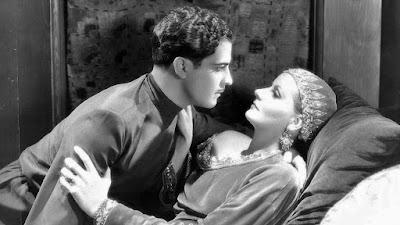
The most celebrated spy in the world is James Bond, but in terms of real people, it’s absolutely Mata Hari. At the very least, she is the most notorious, probably in large part because she spied for Germany in World War I. The film Mata Hari, made in 1931, less than a generation after she was executed for espionage, attempts at least in part to reform her reputation by making her a tragic, romantic figure. Oh, Mata Hari (Greta Garbo) is still a spy and still working for Kaiser Bill, but in this film she falls madly in love with a Russian pilot named Alexis Rosanoff (Ramon Novarro), and she is torn about stealing intel from him. It gets a bit sappy at the end, but Garbo is good as always, and Lionel Barrymore is always a welcome sight.
Film: Mid90s (2018)
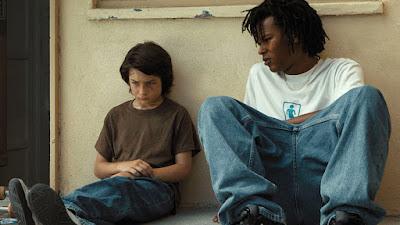
A coming-of-age movie for boys that doesn’t involve death, Mid90s tells the story of Stevie (Sunny Suljic), a 13-year-old boy looking for a place to belong in his rough LA neighborhood. He ends up running with a group of skateboarders who are a little older than he is and a little wilder than he is. Stevie is rebelling from something—his mother, his older brother, everything around him, and while skating might be an outlet, his skating friends might also be leading him down a dangerous path. This is surprisingly good. It also happens to be the directorial debut of Jonah Hill, and I would guess that there’s at least a little bit here that is autobiographical.
